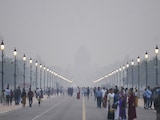A 62-year-old German man who claims to have received over 200 COVID-19 vaccines has become the subject of a scientific study. Researchers were surprised by the reports and are now investigating the man's immune response.
The analysis, published in the Lancet Infectious Diseases journal, looks at the effects of repeated vaccinations on a man's immunity. Even after allegedly receiving 217 doses, the vaccines appear to be generating antibodies and increasing his protection.
Doctors at Friedrich-Alexander-Universitat Erlangen-Nurnberg and hospitals in Munich and Vienna became interested in the case after hearing local news reports. They contacted the man and invited him for tests, which he reportedly agreed to willingly.
"We learned about his case via newspaper articles," explains Privatdozent Dr Kilian Schober from the Institute of Microbiology-Clinical Microbiology, Immunology, and Hygiene (director Proffessor Dr Christian Bogdan) in a written statement.
"We then contacted him and invited him to undergo various tests in Erlangen. He was very interested in doing so." Schober and his colleagues wanted to know what consequences hypervaccination such as this would have. How does it alter the immune response?
As a rule, vaccinations contain parts of the pathogen or a type of construction plan that the vaccinated person's cells can use to produce these pathogenic components themselves. Thanks to these antigens, the immune system learns to recognise the real pathogen in the event of a later infection. It can then react more rapidly and forcibly. But what happens if the body's immune system is exposed extremely often to a specific antigen?
"That may be the case in a chronic infection such as HIV or Hepatitis B, that has regular flare-ups," explains Schober. "There is an indication that certain types of immune cells, known as T-cells, then become fatigued, leading to them releasing fewer pro-inflammatory messenger substances." This and other effects triggered by the cells becoming used to the antigens can weaken the immune system. The immune system is then no longer able to combat the pathogen so effectively.
Blood samples from several years investigated
The current study, which also involved researchers from Munich and Vienna, does not deliver any indication that this is the case, however. "The individual has undergone various blood tests over recent years;" explains Schober. "He gave us his permission to assess the results of these analyses. In some cases, samples had been frozen, and we were able to investigate these ourselves. We were also able to take blood samples ourselves when the man received a further vaccination during the study at his own insistence. We were able to use these samples to determine exactly how the immune system reacts to the vaccination."
The results showed that the individual has a large number of T-effector cells against SARS-CoV-2. These act as the body's own soldiers that fight against the virus. The test person even had more of these compared to the control group of people who have received three vaccinations. The researchers did not perceive any fatigue in these effector cells, they were similarly effective as those in the control group who had received the normal number of vaccinations.















